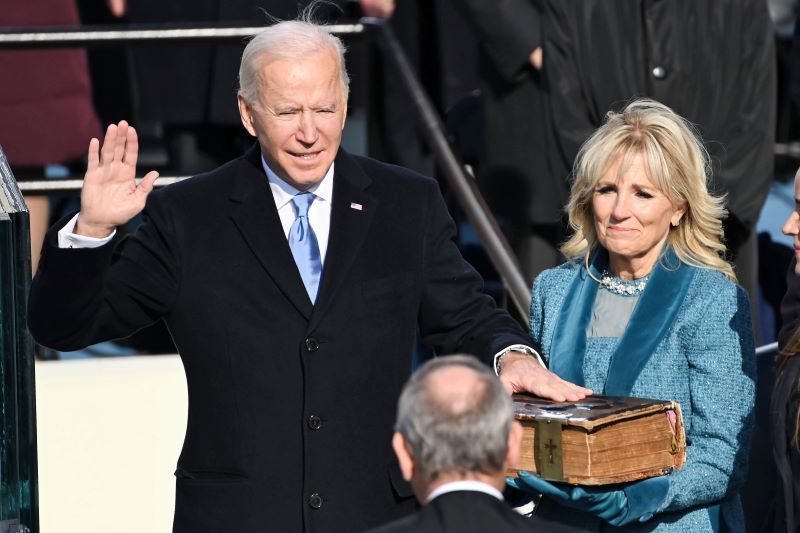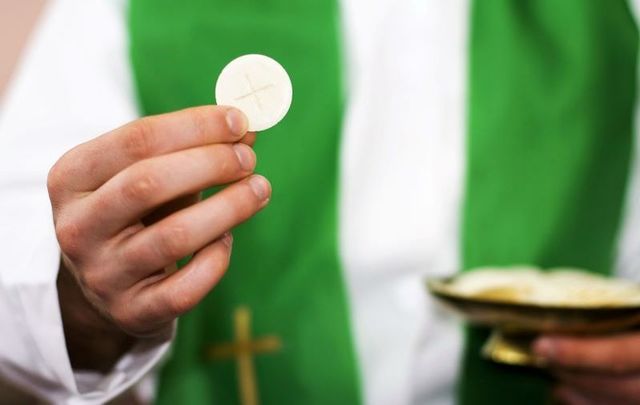A report in the New York Times claims that the Vatican is unlikely to get on board with the June 18 decision by the US Conference of Catholic Bishops (USCCB) to move forward with drafting new Eucharist guidance.
The USCCB's decision is nearly directly related to President Joe Biden, the second Catholic President in US history, who has previously said that while he does not personally support abortion, he would not impose his religious beliefs on the wider American population, much to the chagrin of conservative Catholic bishops.
On June 21, Jason Horowitz of the New York Times noted that the Vatican’s “silence” after the USCCB vote on Friday “reflected that the pope and his top officials remained confident that the American conservatives would never actually pass such a doctrinal declaration on banning communion.”
Horowitz explains that Church law dictates for such a measure to pass, the bishops’ conference would need either unanimous support or two-thirds support and the Vatican’s approval.
"It's not going to get to that point," one senior Vatican official with knowledge of the thinking inside the Congregation for the Doctrine of the Faith, the church’s doctrinal watchdog, told Horowitz. "It's inconceivable."

January 20, 2021: Joe Biden is sworn in as president using a family bible. (Getty Images)
The same day that the USCCB voted to move forward with its draft, more than 60 Catholic Democratic members of US Congress signed a statement, drafted in part by Irish American Representative Brendan Boyle, which said: "The Sacrament of Holy Communion is central to the life of practicing Catholics, and the weaponization of the Eucharist to Democratic lawmakers for their support of a woman’s safe and legal access to abortion is contradictory. "
It added: "We solemnly urge you to not move forward and deny this most holy of all sacraments, the source and the summit of the whole work of the gospel over one issue."
On Saturday, when President Biden was asked about the USCCB’s vote, he replied: “That’s a private matter. And I don’t think that’s going to happen.”
In 2012, speaking during the Vice Presidential debate against Paul Ryan, Joe Biden said: "With regard to abortion, I accept my church's position that life begins at conception, that's the church's judgment, I accept it in my personal life.
"But I refuse to impose it on equally devout Christians and Muslims and Jews and I just refuse to impose that on others, unlike my friend here, the congressman.
"I do not believe that we have a right to tell other people that women can't control their body. It's a decision between them and their doctor, in my view. And the Supreme Court--I'm not going to interfere with that."
Elsewhere, Kathleen Kennedy Townsend, the niece of the first Catholic US President John F. Kennedy, co-authored a piece entitled "Conservative Bishops’ Attack on Biden Is an Attack on the Majority of U.S. Catholics" for The New Republic with Patrick Whelan, which was published on June 21.
Their piece says in part: "Rather than questioning one another’s faith or respect for the sacredness of life, they [the USCCB] should follow the lead of Pope Francis and give glory to God by reaching out to our Catholic president in pursuit of the common good."
Despite the speculation that the Vatican is unlikely to support the USCCB's actions, as well as the pushback from leading Catholic Democrats, Bishop Kevin C. Rhoades, who chairs the USCCB doctrine committee, explained the next steps to Our Sunday Visitor, where is he a member of the Board of Directors.
He said: “In our current time and culture, there is a temptation to privatize our faith or to separate our celebration and reception of holy Communion from our responsibility to live in communion with the Church and to live lives that are consistent with the deep meaning of the Eucharist, the sacrament of charity.”
Rhoades noted that “we will be in consultation with the Vatican Congregation for the Doctrine of the Faith during this process since this will be a teaching document on the Eucharist.”
He later added: “I am hopeful that, come November, there will be an even larger number of bishops who will support the document that we will have prepared.”




Comments